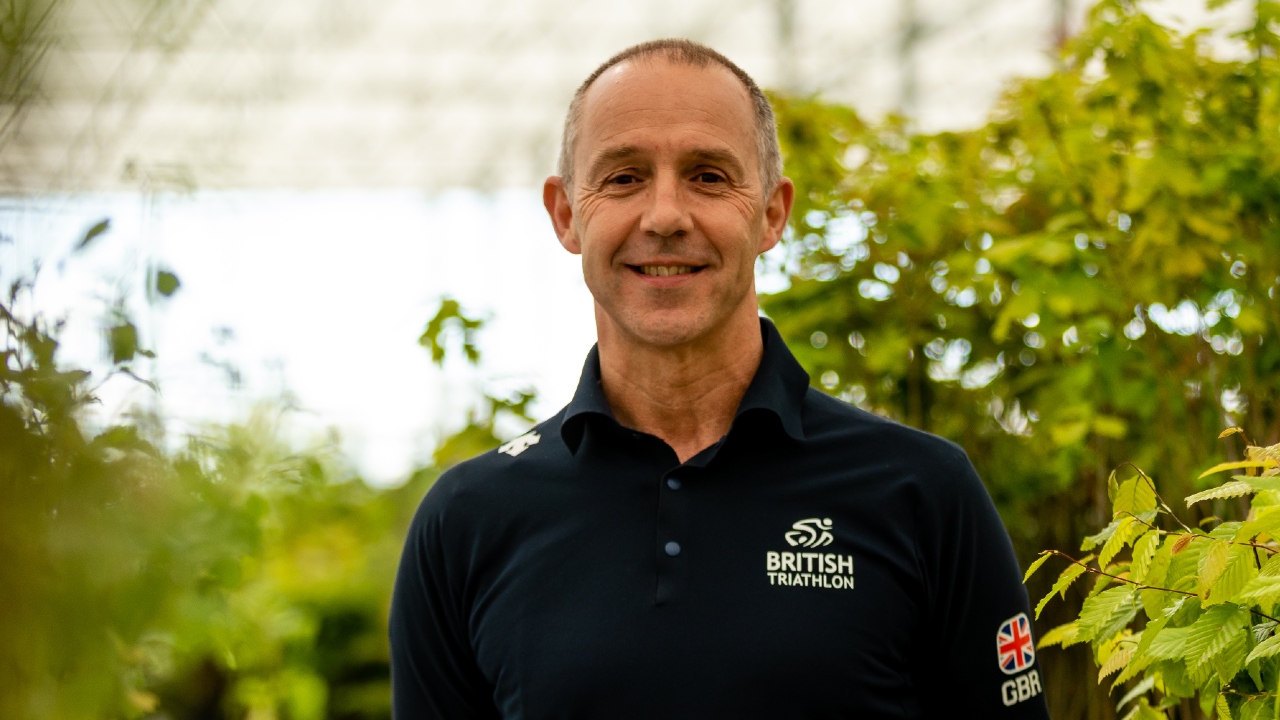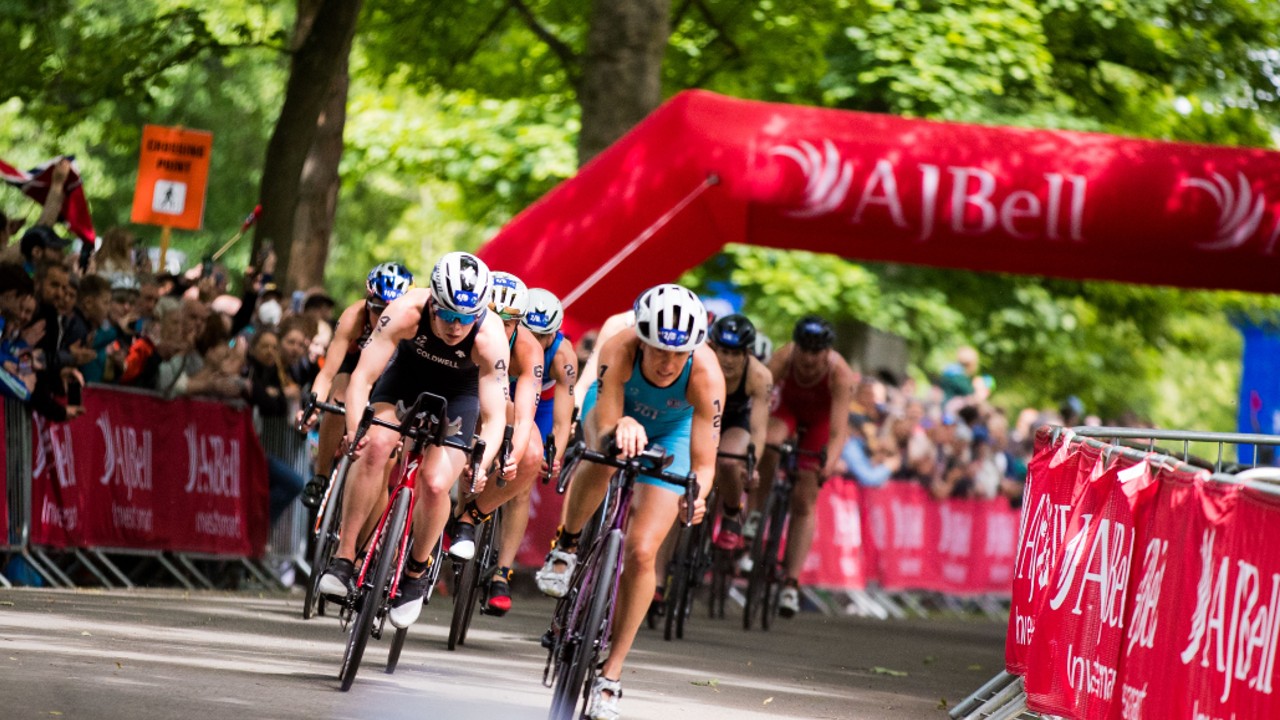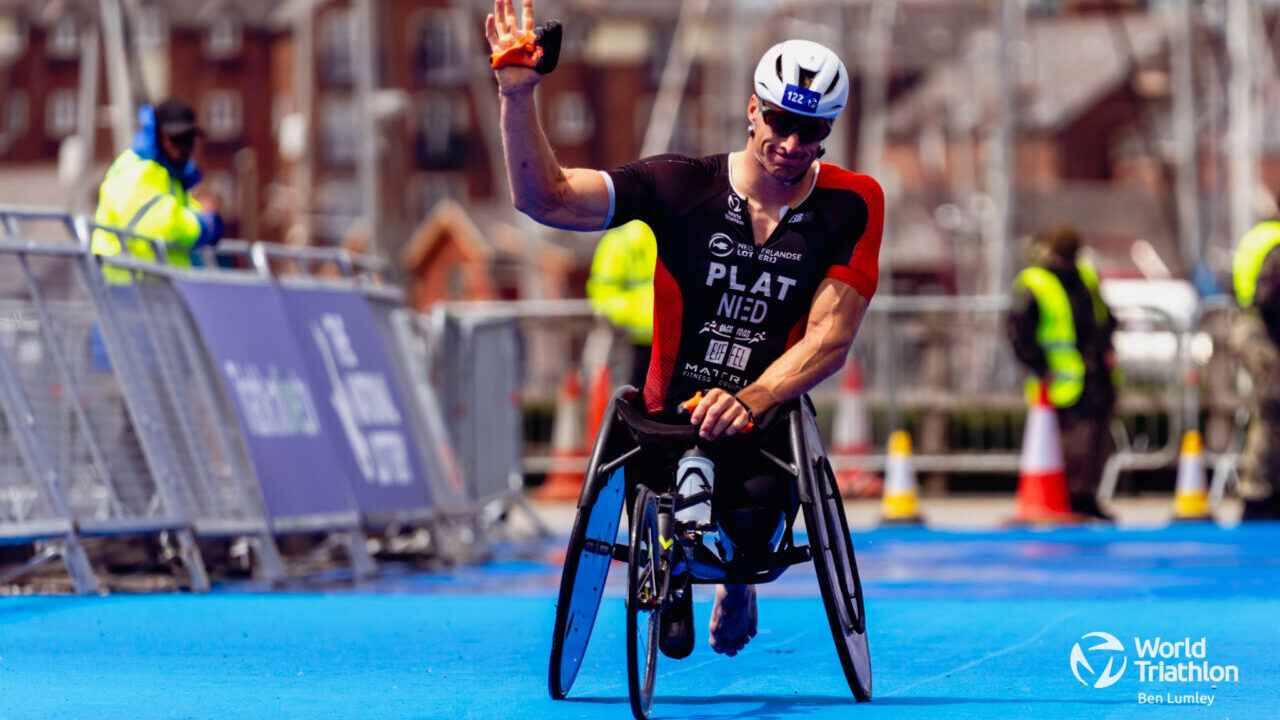British Triathlon CEO Andy Salmon has explained exactly why the Federation decided not to bid for a WTCS event in 2024 after it was announced earlier this week that Leeds won’t return to the schedule next year.
Great Britain has been a key part of the WTCS calendar, with Leeds having been a huge success story in recent years – driven by the Brownlee brothers and now a hub for many leading elite triathletes.
Sunderland steps in for the first time this weekend but 2024 will be the only year since the London Olympics in 2012 that there won’t be a British city acting as host.
In a wide-ranging interview with TRI247, Salmon outlined the reasons and revealed the figures behind the decision, also giving us his take on the wider implications for the sport – and the hope that they will be back on the schedule sooner rather than later.
Popular Stories Right now
The real costs involved
Setting out the process, he told me: “The way it works is we, as a National Federation, bid to World Triathlon for the right to host an event, and then it’s for us to then partner with a city partner. So we’re in Sunderland this coming weekend.
“The plan was to go back to Leeds next year. So clearly we talked with Leeds a great deal about the decision and we also talked with UK Sport, who are also our other key funding partner. The decision sits with BTF, but we didn’t take it in isolation, we took it talking to our partners.
“But it’s our responsibility and we’ll take it on the chin, so to speak. We’ll take full responsibility for the decision.”
In some quarters, estimates of £500,000 had been cited as the costs involved. But in the current economic climate, Salmon revealed it’s way, way more than that.
He explained: “Like any budget, it’s about income and expenditure, and the event budget was squeezed from both sides.
“So the cost first of all – our budget – and I don’t know if people realise just what’s involved in staging one of these events but there are clearly costs that we pay to World Triathlon for the right to host the event. There’s prize money, there’s sanctioned fees and so on but the [overall] budget in round numbers is £1.5million. That was the expenditure budget we were working with.”
 Andy Salmon – regret at decision but says it was the right one [Photo credit: British Triathlon]
Andy Salmon – regret at decision but says it was the right one [Photo credit: British Triathlon]
Balancing the books
That’s one side of the equation, and of the other he added: “So clearly we’ve got to generate one and a half million pounds of income to balance the budget.
The event for us is never about creating a surplus. I think perhaps there is a bit of a myth that the event creates this sort of big profit. It doesn’t, it’s just not what it’s about.
“The event is about giving a home soil opportunity to our elite athletes but it’s more than that and, in recent years, we’ve tried to make it much more about introducing the sport to a wider audience – and a new audience.”
And further pressures – outside of British Triathlon’s control – have only added to the balancing act: “So, on the cost side, we pay all our World Triathlon costs in US dollars. And though it’s recovered a little bit recently, the exchange rate with the dollar in the early part of this year was horrible. So that was really hurting us.
“And inflation has really, really hurt us too – I’d say our delivery inflation rate is probably much closer to 20%. So the costs are going up significantly. But the double whammy is it’s getting harder and harder to secure the revenue.
“The revenue comes from mass participation entries and mass participation entries right across the sector are down compared to 2019. We still haven’t recovered fully from the pandemic, but securing commercial income is getting harder and harder.
“We have a fantastic title sponsor in AJ Bell, but we’re finding it harder and harder to find category sponsors to sit alongside AJ Bell. So it was that double-edged sword, as I say, of bringing in the income we need whilst costs are rising.”
The ‘responsible decision’
All of which led to a difficult decision, but one which Salmon clearly feels was the right one in the circumstances.
He said: “As a governing body we invest in that event, we invest cash and we invest a huge amount of staff time and we’re not immune from the cost of living crisis. So everything that we do is significantly more expensive now than it was a year ago, than it was two years ago.
So we have to make difficult decisions and say we can’t keep doing everything if everything is 10% or 15% or 20% more expensive than it was last year.
“And so, with huge regret – I’m really, really sad about the decision we reached – but we think it was a responsible decision. We went through a really robust process, the board approved the process that we went through and this is the sad reality.”
 The world’s best triathletes have flocked to WTCS Leeds [Photo credit: World Triathlon]
The world’s best triathletes have flocked to WTCS Leeds [Photo credit: World Triathlon]
Britain has been such an integral part of WTCS that their decision not to host in 2024 must surely have set alarm bells ringing at World Triathlon I suggest?
“I don’t want to speak on their behalf but I know they were disappointed,” says Salmon. “They’ve got a model, an event model that they follow. It’s proven too difficult for us to make that model work for us in 2024, but we definitely want to be part of that schedule.
“We don’t want to be that Federation that just sits back and picks off other people’s races. We want to have a race of our own, for our athletes to race on home to soil and for other athletes to come and race in the UK and to get onto the television as well, and inspire people in their living rooms up and down the country.
“So, yeah, for sure they’re disappointed. But I think, like me, they probably hope that we can get back on the schedule sooner rather than later.
“And I think it’s also really important to say we’re not giving up. I’m joining a working group that World Triathlon have put together to look at the model for the WTCS and the WTPS [World Triathlon Para Series], which is really important to us, so I’m involved in that and I hope to contribute positively to that work.
“But we’ll also talk to other third-party event organisers, other businesses in the UK and see if we can find another way that we can bring these events to the UK in the future and continue to partner with great cities like Leeds, Sunderland and Swansea who want to bring the world’s best triathletes to their cities.”
Swansea safe for 2024
And on the subject of Swansea and the WTPS, I ask him how secure that event is going forward – with the second edition having taken place recently:
“Rightly or wrongly, the budget there is a completely different shape. I mentioned that a WTCS race typically is costing about one and a half million pounds in today’s prices but the WTPS in Swansea costs about one third of that, less than half a million pounds.
“So it’s still really hard work and we still have the same cost pressures there that we have with the WTCS, but it’s a much smaller mountain to climb and we’ve secured all the investment we need for next year’s event. So that will go ahead in 2024 in Swansea.
“And something that we’re really clear about, and it might seem a little strange to some of your readers, but when we set out our major event strategy back in 2021, we said we wanted to host World Triathlon Para Series and World Triathlon Championship Series concurrently in the UK. But if we needed to identify a priority, then the Para Series would be our priority. And that has played out.
“It’s not to say we didn’t want the Championship Series but there are only four events this year on the Para Series, so we take our responsibility really seriously and we think our elite paratri athletes, not just the British ones, but all around the world, deserve better. And we think we’ve got to practice what we preach.”
 The great Jetze Plat starred at this year’s World Triathlon Para Series in Swansea [Photo credit: World Triathlon]
The great Jetze Plat starred at this year’s World Triathlon Para Series in Swansea [Photo credit: World Triathlon]
Moving with the times
The realisation that there will be no WTCS event in Britain in 2024 came hot on the heels of IRONMAN UK in Bolton also coming off the calendar, so I ask Salmon whether triathlon as a sport, especially in the UK, is facing challenging times:
“Yeah, I think it’d be daft of me to pretend otherwise, but those challenges bring opportunities as well. And I think we used to look at sports as [separate] silos and maybe think, well, there’s major events, there’s elite performance and there’s grassroots. But what we’re trying to do now is connect those things up. And we’re not alone. UK Sport, Sport England and the other Home Nations are doing the same.
“What we’ve done in Leeds in recent years, and we’re definitely doing in Sunderland this year, is saying this is about 52 weeks of the year. So it’s about relevance to the audience, it’s about growing the sport, but not just growing the sport amongst the typical kind of participants that we’ve known for the last 40 years, but reaching new participants who previously haven’t engaged with the sport.
“So to come back to your question, yes, these are challenging times, but it just serves to tell us what I think was always obvious, that if you just keep doing the same thing year after year after year, it’s not going to be good enough. You have to keep evolving. And I think the most important word is probably relevance. As sports, as governing bodies, as owners of rights and assets, we’ve got to be relevant to the audiences we’re trying to serve.
“So we’ve got to be relevant to the existing community of people who swim, bike and run. But we’ve also got to be relevant to the future generations who hopefully are going to discover the joy of the sport that we all love.”
And going forward Salmon sees triathlon clubs as a key part of that equation, explaining: “We’re still close to 25% down on overall numbers taking part in races versus 2019. So that’s a concern, but we’re seeing that across mass participation. It’s not just a ‘triathlon in the UK’ thing.
“Clubs have bounced back really well from the pandemic and are a really big focus for us. We believe that the future health and the future success, future growth of the sport, has clubs right at the core.
“The vision has always been about great experiences through swim, bike, run, so if we can help clubs to give their members a great experience and if we can help race organisers to give their participants a great experience, then we succeed together. And that’s very much the theme of what we’re trying to do – succeeding together.”
>>> Read full article>>>
Copyright for syndicated content belongs to the linked Source : Tri247 – https://www.tri247.com/triathlon-news/elite/wtcs-leeds-no-race-2024-true-costs-andy-salmon-reaction?utm_source=rss&utm_medium=rss&utm_campaign=wtcs-leeds-no-race-2024-true-costs-andy-salmon-reaction










